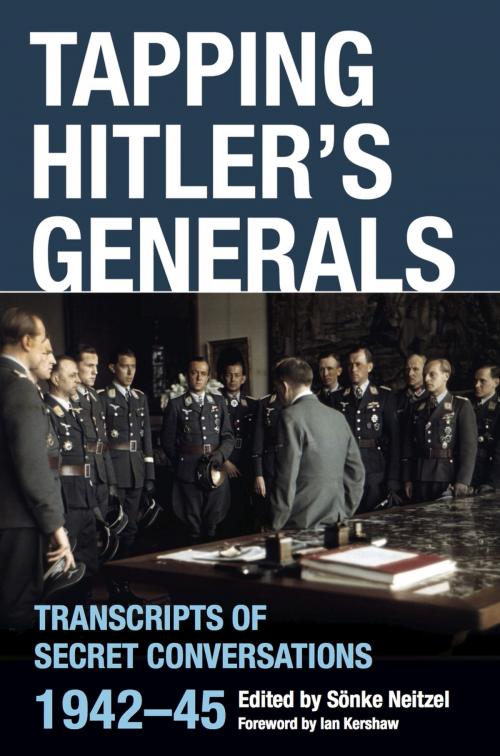Tapping Hitler's Generals
Transcripts of Secret Conversations 1942–45
Nonfiction, History, Military, World War II| Author: | Sönke Neitzel | ISBN: | 9781783830558 |
| Publisher: | Frontline Books | Publication: | July 19, 2013 |
| Imprint: | Frontline Books | Language: | English |
| Author: | Sönke Neitzel |
| ISBN: | 9781783830558 |
| Publisher: | Frontline Books |
| Publication: | July 19, 2013 |
| Imprint: | Frontline Books |
| Language: | English |
‘A goldmine of information about what the German High Command privately thought of the war, Adolf Hitler, the Nazis and each other’ – Andrew Roberts
‘One of the most important books on World War II to be published in the last thirty years’ – Tim Newark
Between 1939 and 1942, a division of the British Directorate of Military Intelligence created a number of PoW interrogation camps in and around London. Sophisticated tapping equipment was installed and secret gramophone recording were made of private conversations between senior German staff officers.
In this extraordinary work Professor Neitzel examines these transcripts in depth for the first time. His findings are truly revealing and address important questions regarding the officers’ attitudes towards the German leadership and Nazi policies: How did the German generals judge the overall war situation? From what date did they consider it lost? How did they react to the attempt on Hitler’s life in July 1944? What knowledge did they have of the atrocities?
By turns insightful and horrifying, this unprecedented research is a must for any serious scholar of the period and anyone interested in exploring the truth behind the image of an ‘unblemished Wehrmact’.
‘A goldmine of information about what the German High Command privately thought of the war, Adolf Hitler, the Nazis and each other’ – Andrew Roberts
‘One of the most important books on World War II to be published in the last thirty years’ – Tim Newark
Between 1939 and 1942, a division of the British Directorate of Military Intelligence created a number of PoW interrogation camps in and around London. Sophisticated tapping equipment was installed and secret gramophone recording were made of private conversations between senior German staff officers.
In this extraordinary work Professor Neitzel examines these transcripts in depth for the first time. His findings are truly revealing and address important questions regarding the officers’ attitudes towards the German leadership and Nazi policies: How did the German generals judge the overall war situation? From what date did they consider it lost? How did they react to the attempt on Hitler’s life in July 1944? What knowledge did they have of the atrocities?
By turns insightful and horrifying, this unprecedented research is a must for any serious scholar of the period and anyone interested in exploring the truth behind the image of an ‘unblemished Wehrmact’.















